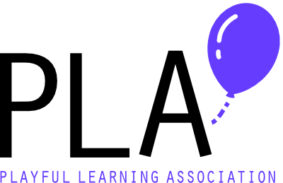Utilising Scavenger hunts to activate principles of interprofessional education
Corresponding Author: Ailsa Dollard
All authors: Emma Darbyshire (edarbyshire1@uclan.ac.uk), Emma Gillaspy and Abhilasha Jones
Length: Foyer (runs throughout)
Location: Foyer
Description:
This session will demonstrate how scavenger hunts help teams deliver interprofessional education (IPE). The Centre for Advancement of Interprofessional Education (CAIPE) defines IPE as ‘When two or more professional learn with, from and about each other to improve collaboration and quality of care’ (Barr 2013).
IPE is a hot topic in health education. The World Health Organisation (WHO) deems IPE a necessary step in preparing a collaborative, practice-ready workforce that is better prepared to respond to health needs (WHO, 2010). Underpinned by principles of teamwork, communication skills and collaboration, IPE is relevant to any sector.
Scavenger Hunts have been around a long time. They are powerful educational tools allowing mischief and play to encourage teams to collaborate to solve puzzles whilst exploring the wider environment.
Traditional classroom settings can struggle to maintain learners attention (Smith 2020), the integration of Scavenger Hunts allows animation, unpredictability, and competition. The gamified nature of Scavenger Hunts makes them an ideal channel for educational interventions by merging entertainment with academic rigor (Smith 2020). The hunt instigates real time problem solving and teamworking which can later be reflected on in debriefing.
For these reasons we chose a scavenger hunt when developing an IPE session for medical and nursing students. Inspired by this session we aim to share our findings of delivering IPE and scavenger hunts. We do not want to tell you about our findings, we want you to play…
In this foyer session players will engage as small teams (friends, strangers, colleagues), working collaboratively to complete a scavenger hunt. First clue, find the hunt masters. From there each team will need to complete tasks and decipher cryptic clues to figure out where they are going next. The hunt will take in different areas of the venue. QR codes will be placed at the puzzle locations with players required to scan the codes to be able to complete a variety of styles of puzzle. This is not your average scavenger hunt, players will need to embrace taking selfies, lateral thinking, quizzing, and adventuring. In doing so they will be exploring the space, learning about themselves and others, and how to best apply their specialist skills. The reward for completing each puzzle successfully? Insights from our experience designing and delivering IPE, testimonials from students involved in these sessions and learning from our mistakes/ successes with or top tips and thinking points. The ultimate prize will be players own inspiration, following playing the hunt they can consider how they will incorporate scavenger hunts into their own practice. Due to the nature of running the hunt during a conference, players can play at any time, spending as long or as little at each puzzle. We encourage players to return to the hunt master on completion to share learning points and feedback.
In conclusion, integrating these innovative approaches can offer an interactive and engaging learning experience which will hopefully nurture a culture of cooperation and understanding across disciplines and bring something different to your usual teambuilding activities.
References, web links and other resources:
Barr, H., & Low, H. (2013). Introducing Interprofessional Education. Fareham: CAIPE.
Barr, H., & Gray, R. (2013). “Interprofessional Education: learning together in health and social care”. In Walsh K (ed.) “Oxford Textbook of Medical Education” Oxford University Press.
CAIPE. (2017). Interprofessional Education Guidelines. (Barr, H., Ford, J., Gray, R., Helme, M., Hutchings, M., Low, H., Machin, A. and Reeves, S.). London: 2017, CAIPE. Available at:www.caipe.org
Smith, A.N. (2020) Gamification in the Classroom : The Impact of Online Gamified Elements on Student Engagement and Academic Performance. Journal of Educational Computing Research, 58(7), 1403-1427.
WHO. (2010). Framework for Action on Interprofessional Education and Collaborative Practice. Geneva: WHO.
